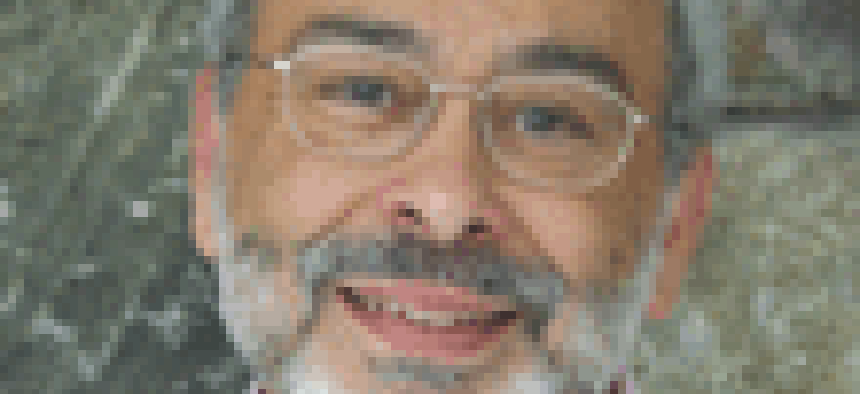Survival Guide: Nabil Amer, manager of physics of information at IBM

Nabil Amer, manager of physics of information at IBM
Few Fortune 500 companies are more aggressive about investing in research than IBM Corp. So it is no surprise that the Armonk, N.Y., company is working on the furthest frontier of information technology: quantum computing. Over the past century, scientists have gradually supplanted much of what we know about classical physics -- as laid out by Isaac Newton in the 17th century -- with the new, stranger version of reality called quantum mechanics, which defines how things work in the nanoscopic scale. But today's computers are still hammered together mostly with the tools of Newtonian physics. So IBM is exploring ways of harnessing the quantum realm. It has built what it claims to be the world's largest quantum computer, one that factors small equations using seven quantum bits, or about a billion billion molecules.Washington Technology staff writer Joab Jackson spoke with Nabil Amer, IBM's manager of physics of information, to learn about the work his team is doing as well as when we will see the first quantum computers. How does quantum computing work? Quantum physics is rather weird and unnatural to the human senses. In classical computing, you can have a register that is either "0" or "1." It is like a switch. It is either on or off. A quantum switch can be both "0" and "1" at the same time.This is true parallel computing. Think of what we call parallel computing today. We parse the problem to a whole batch of processors. One processor will be doing something, and the rest will be waiting for the answer from the first one. That is not true parallel computing. In quantum computing, all these processors would be working on the problem at the same time. That would give you enormous leverage in the speed and power of computing. When will we see the first working quantum computing? I have no idea. There could be a major breakthrough, or it could be incremental progress that takes a long time. The daunting challenge is to come up with the technology. There are lots of clever people who will tackle that challenge, so we are making progress.This is a very young field. Atomic physicists were able to demonstrate that you can make one qubit, or quantum bit. But one qubit doesn't get you too far. The name of the game is scalability. Now that the physics is established, there doesn't appear to be anything fundamentally wrong with the concept of quantum computing, so the challenge becomes technological. My personal prediction is that if we succeed in making a quantum computer with a decent number of qubits, it will not instantly replace what sits on your desk or what sits in a bank. It will be a hybrid. The quantum computer will be a special purpose computer attached to a regular computer, and will tackle certain problems that it will be very good at and feed the information to the regular computer.What sorts of problems are suited for quantum computing? The first product you will see will be quantum cryptography system. Quantum cryptography combines the two most important attributes of cryptography: It is absolutely secure, and has the convenience of public-key distribution. When you buy something on the Web, you don't go and meet them to give them the key; you use a public key. But a public key can be cracked, so this combination is very important. Quantum keys cannot be cracked. If anyone tries to eavesdrop, you will know right away. We have developed a quantum key distribution prototype, and we're evolving it into a compact and rugged version for possible use in the real world. There is also quantum communications. Under some conditions you can enhance channel capacity of communications significantly. We're trying to determine the upper bounds. I'm pushing very hard to get an experimental group going within IBM to implement some of our theoretical work. You can network the whole country using quantum networks with very enhanced capacity and absolute security. How will our lives change when quantum computing is pervasive? We will be able to solve very complicated scientific problems, design very complex engineering projects and tackle grand challenges, such as weather forecasting, much more efficiently than computers today. We'll also be able to do supremely efficient database searches and data mining in a way that's much more sophisticated and powerful than what could be done today with existing computers. How should integrators prepare for the quantum computing age? It's far too early to worry about this, because it will depend on which particular quantum computing implementation is chosen.

WT:
Amer:
WT:
Amer:
WT:
Amer:
WT:
Amer:
WT:
Amer:

Nabil Amer
IBM Corp.
WT:
Amer:
WT:
Amer:
WT:
Amer:
WT:
Amer:
WT:
Amer: